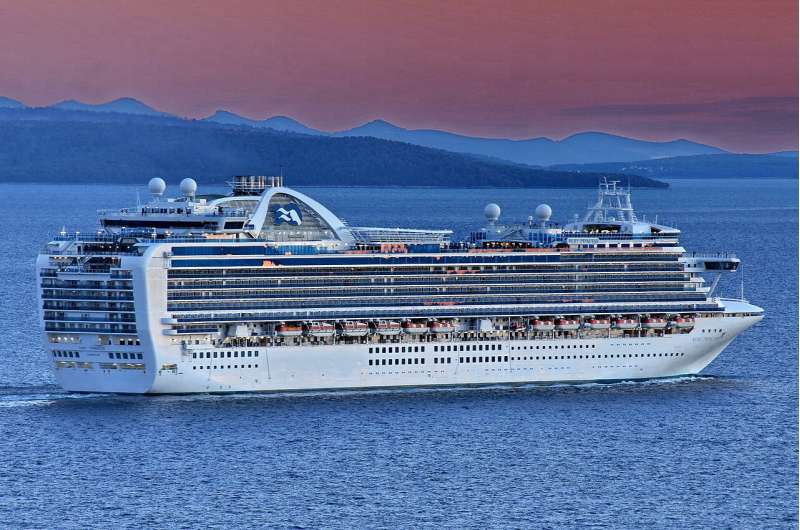Australian researchers track COVID-19 in wastewater from plane and cruise ship passengers

As Australia considers how to safely welcome international visitors again, testing wastewater systems on long-haul planes and cruise ships could provide crucial information on detecting the presence of the COVID-19 virus in incoming passengers.
A new paper in the Journal of Travel Medicine reported that testing of aircraft and cruise ship wastewater upon arriving at their destination had detected genetic fragments of the COVID-19 virus, SARS-CoV-2, a step forward in using this test as an additional public health management tool.
Researchers from The University of Queensland (UQ) and Australia's national science agency CSIRO worked with transport companies to test on-board wastewater from lavatories.
Minister for Industry, Science and Technology Karen Andrews said Australian scientists are doing outstanding work and making a difference in the fight against coronavirus.
"Our science and research communities are among our greatest assets in our efforts to not only overcome this pandemic, but also to assist in the economic recovery from COVID-19," Minister Andrews said.
"The ability to test wastewater from planes and cruise ships is another piece of the puzzle as we look to the future of travel and keeping Australians safe."
CSIRO Chief Executive Larry Marshall said rapidly pinpointing hotspots for COVID-19 will help keep all Australians safe as we start to travel again.
"Responding to a pandemic is not just about the race for a vaccine, Australian science is supporting our economic recovery by delivering for partners like Qantas," Dr. Marshall said.
"Our relationship with air travel goes back to the 60s, and today our unique coatings already protect aircraft, so it's great to be trusted to keep Australia flying while helping to stay ahead of any potential new outbreaks."
Paper co-author and Professor Jochen Mueller from UQ's Queensland Alliance for Environmental Health Sciences said this tool could help as governments and transport industries develop plans to minimize transmission associated with resuming international travel.
"This could provide additional peace of mind to track and manage infection and play an important role in opening up long-haul flights or cruises resuming," Professor Mueller said.
The test provides an early warning of infection, as the virus sheds in the stools of infected passengers even before they show symptoms.
Lead author and CSIRO researcher Warish Ahmed said the virus fragments in the wastewater were unviable, so not infectious.
"The study indicates that surveillance of wastewater from large transport vessels with their own sanitation systems has potential as a parallel data source to prioritize clinical testing among disembarking passengers," Dr. Ahmed said.
More information: Warish Ahmed et al. Detection of SARS-CoV-2 RNA in commercial passenger aircraft and cruise ship wastewater: a surveillance tool for assessing the presence of COVID-19 infected travelers, Journal of Travel Medicine (2020). DOI: 10.1093/jtm/taaa116




















